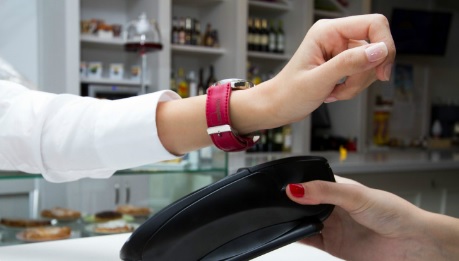From eliminating checkout queues to potentially cutting counterfeiting and even terrorist financing, the rise of cash-free payment systems might not only change the way most of us pay but even pave the way to a cashless society.
In an experimental scheme in Portugal, people scan items as they walk through the aisles using their smartphones, scan a QR code at the till, and then they are on their way after an attendant gives a cursory security check.
It’s all part of a pilot project to trial an app known as YouBeep, created by Porto-based startup Xhockware.
The firm hopes its app will benefit from a cashless payment trend quickly gaining traction, thanks in part to new smartphone and smartwatch payment capabilities, and illustrated recently by Amazon’s checkout-free grocery store.
Xhockware chief executive João Rodrigues says the YouBeep trials made checkouts up to seven times faster than the current process and explains that it gives retailers the chance to engage with their customers before they pay and go.
‘It’s a game changer because once you get (people) used to using the app it provides the retailer with the means to tailor the experience according to the specific customer,’ he said.
Xhockware, which received EU funding to further develop the app, got its foot in the supermarket industry by making YouBeep easy to adopt and creating hardware that simply plugs into existing electronic payment and self-service machines and is ready within hours.
In this way, YouBeep has avoided the deal breaker integration costs that are holding back a transition to cashless payments and it may soon be trialled in UK and French supermarkets, according to Rodrigues.
Meanwhile, Xhockware is now starting to investigate how it can use its solution to assist disabled customers with shopping, and adapt old checkout systems so they can use the new system.
Dr Alex Mifsud, founder and chief executive of virtual payment technology company Ixaris, says that moving towards cashless payments is about more than just convenience.
‘With electronic cash, you solve the problems of the black economy very significantly, you reduce organised crime because organised crime relies on the ease with which you can make financial transactions that are untraceable and you also reduce the scope for terrorist financing,’ he said.
Dr Mifsud is a spokesman for the Open Payment Ecosystem (OPE) project, an Ixaris-led, EU-funded project aiming to enable innovations in the banking industry.
He says change is ‘magnitudes slower’ than in other industries, especially across Europe’s multiple banking markets, meaning new solutions take a lot of time and money to develop and implement.
But a law passed by the EU in late 2015 is set to change this, ruling that banks will have to open up their customers’ accounts to third party developers via programming interfaces.
App shops
With this barrier gone, OPE hopes to offer bank customers app shops packed with third-party services that can be plugged in, facilitating options like cashless payment or peer-to-peer transfers.
OPE aims to achieve this by creating a technical environment containing tools that allow developers to make creative and responsive payment solutions.
When developers finish building a product on the cloud-hosted platform, OPE will run it through its custom-built compliance engine, which operates as an automated system of checks and balances to detect any hidden viruses, loopholes or inaccuracies before the app goes live
OPE is set for a soft launch in April before launching fully in September. Travel industry clients have already purchased payment solutions and banks are interested in the model for in-house development.
While smartphone payments are likely to be at the heart of a cashless society, they’re not the only thing on the table. Spanish firm Wetech received EU funding to accelerate development of the contactless payment chips it combines with accessories such as leather bracelets, keychain devices and watchbands, allowing you to pay for a coffee or groceries with one swipe of your wrist.
Wetech chief technology officer Dr Raul del Coso says pilot tests of the so-called WEAR‘n’PAY devices, integrated with bank-issued cards, have garnered ‘overwhelmingly positive’ feedback.
He argues that the devices are more secure than cash or cards since they are worn and hard to surreptitiously scan or steal. Stolen devices can be blocked without blocking the corresponding card.
‘Furthermore, the chips used in our wearables are secured by hardware encryption that is stronger than the software encryption used in online payments and the data that could be extracted from the wearable could not be used to make payments online or in physical stores,’ he said.
Dr del Coso believes that the exponential use of contactless payments in Europe could see technology like WEAR‘n’PAY enabling the complete replacement of plastic payment or membership cards.
‘In the future, you can envisage even to have your ID card or passport in your bracelet.’


